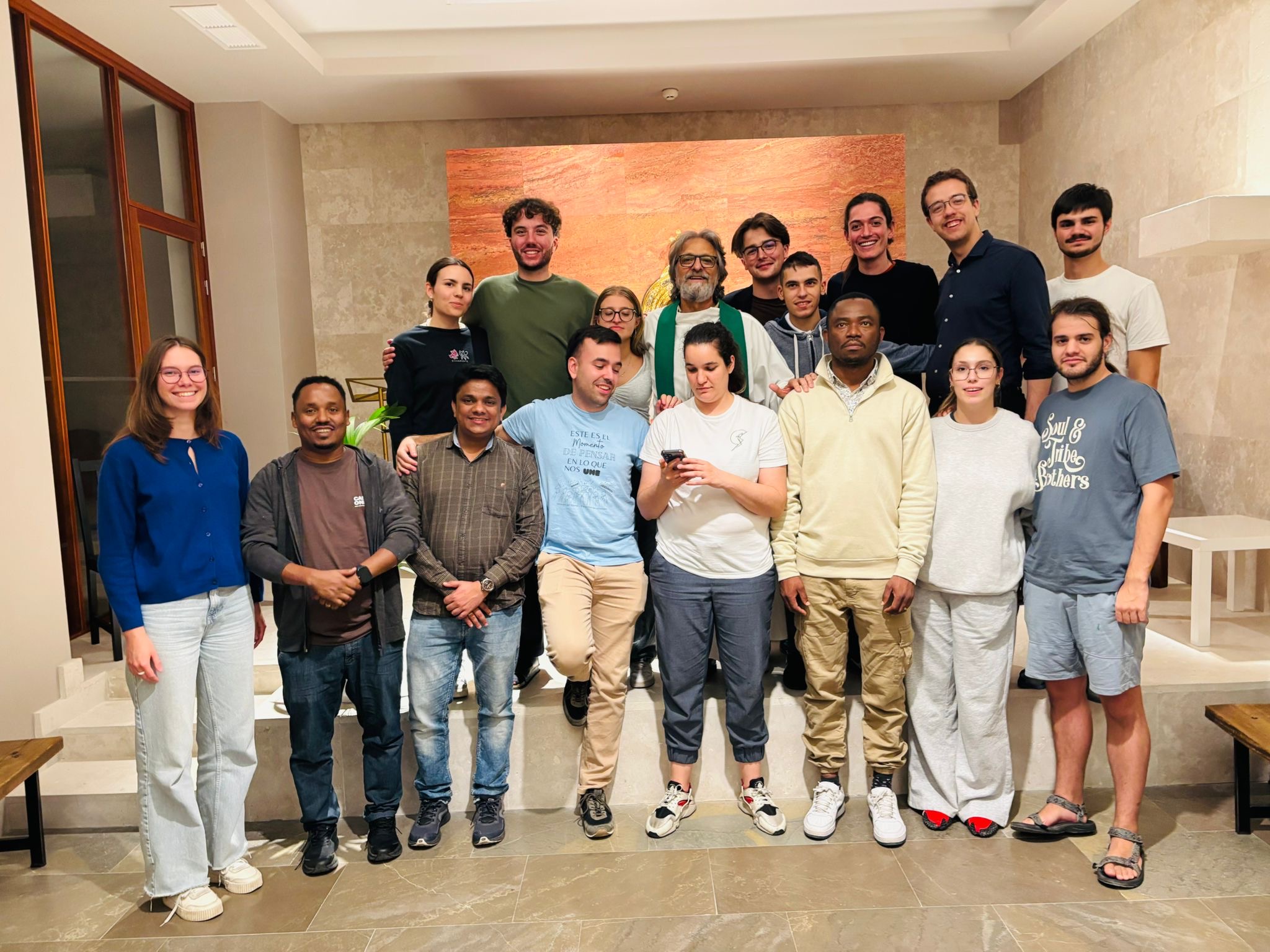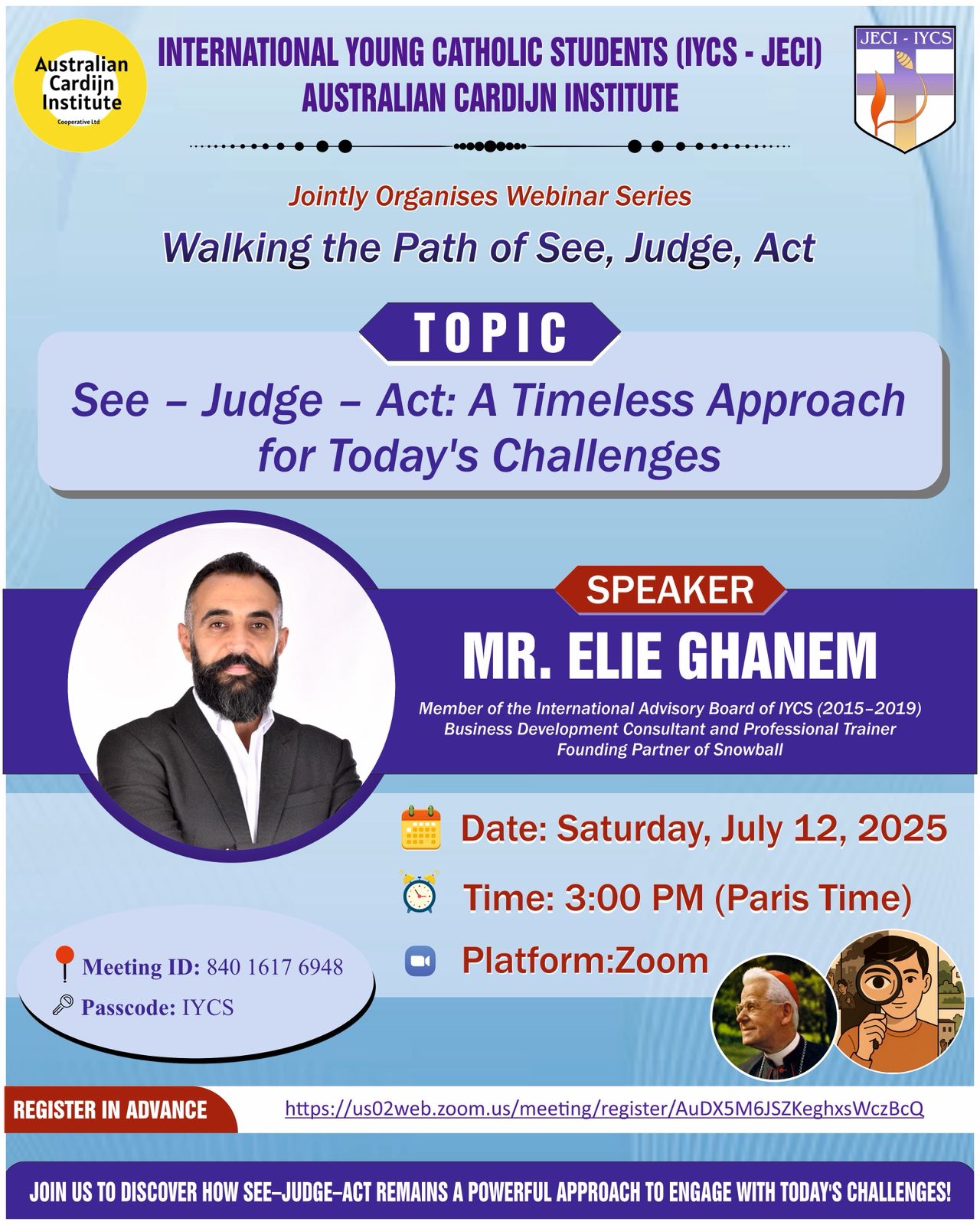
The International Young Catholic Students (IYCS), in collaboration with the Australian Cardijn Institute, successfully organized the fourth session of its ongoing webinar series titled “Walking the Path of See–Judge–Act” on Saturday, July 12, 2025, at 3:00 PM Paris Time via the Zoom platform. The theme of this session, “See–Judge–Act: A Timeless Approach for Today’s Challenges,” attracted 61 participants from across different countries and regions, including students, chaplains, leaders, alumni, and collaborators of the movement.
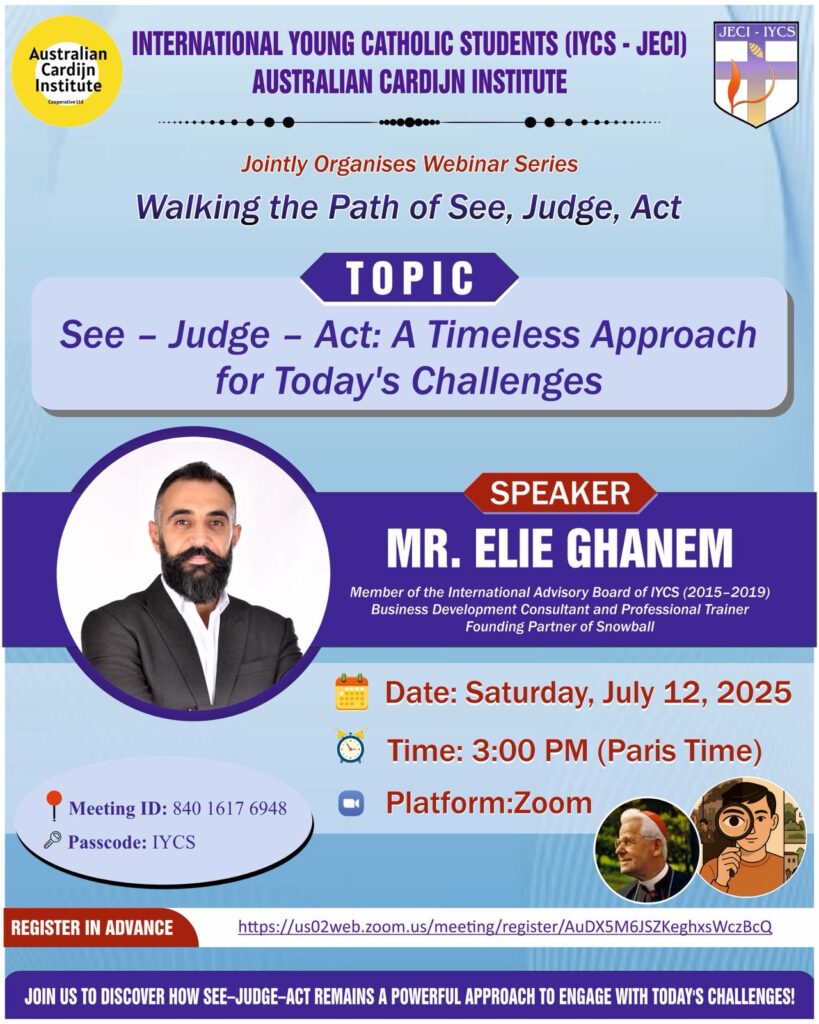
The webinar commenced with a warm introduction and welcome by Mr. Roshan Melwyn Lobo, Secretary General of IYCS, who greeted the attendees and set the tone for the session by acknowledging the significance of the theme in our present global context. This was followed by a moment of spiritual reflection and an opening prayer led by Rev. Fr. Justo De La Fuente Fernandez M.Id., International Chaplain of IYCS. The platform was then handed over to the moderator, Dr. Stefan Gigacz, an Honorary Postdoctoral Associate at Yarra Theological Union and Secretary of the Australian Cardijn Institute. Dr. Gigacz, known for his scholarship on Joseph Cardijn and the See–Judge–Act methodology, facilitated the session with insight and clarity.
The keynote address was delivered by Mr. Elie Ghanem, a long-time member and leader within the movement. Mr. Ghanem has served in several capacities including General Secretary of JEC Lebanon, Middle East Coordinator for IYCS, and as a member of the International Advisory Board. Professionally, he is a business development consultant, professional trainer, and founding partner of Snowball, a consulting and training firm based in Lebanon. In his presentation, Mr. Ghanem addressed the urgent need for transformative leadership in confronting today’s global and personal challenges. He reflected on how the See–Judge–Act methodology continues to provide a practical and ethical framework to navigate issues such as identity crises, mental health pressures, social instability, and the growing complexity of digital communication and misinformation.
The speaker highlighted the growing disconnect faced by individuals in a materialistic and fast-changing world and emphasized the importance of ethical discernment in response to these challenges. He illustrated how the See–Judge–Act methodology allows individuals to deeply observe their environment, critically analyze its causes, and take action grounded in justice, truth, and compassion. In particular, he explained the “See” phase as a process of engaged observation and internal reflection—an invitation to go beyond appearances and understand reality as it truly is. The “Judge” component, he said, calls for a deep moral evaluation rooted in Gospel values and human dignity, while the “Act” phase challenges individuals to take meaningful and responsible action.
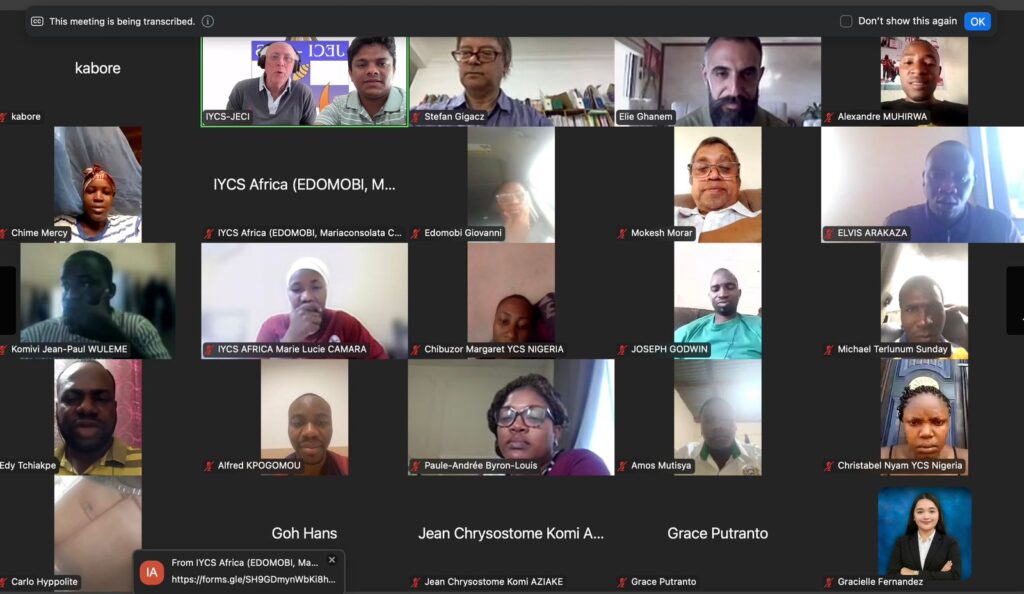
A significant part of the presentation was dedicated to the role of emotional intelligence in leadership and decision-making. Mr. Ghanem emphasized active listening as a core quality of emotionally intelligent individuals, describing it as the ability to be fully present—psychologically, emotionally, and intellectually—during an interaction. He outlined the five pillars of emotional intelligence: self-awareness, self-management, self-motivation, empathy, and social skills, stating that these competencies are essential for leaders who seek to create positive change in their communities.
Moreover, the speaker shared practical applications of the See–Judge–Act methodology in various spheres, including education, business, and personal development. Drawing from his experience as a trainer and consultant, he provided real-life examples of how SJA serves not only as a method for reflection and decision-making but as a lifelong habit. He encouraged participants to internalize the methodology as a daily practice—applying it in personal conflicts, community dilemmas, and structural issues alike. He stressed that being well-informed, maintaining objectivity, and considering multiple perspectives are all essential components of this approach.
Following the keynote, Dr. Stefan Gigacz facilitated a discussion and experience-sharing session, inviting participants to reflect on what they had heard and relate it to their local realities. The dialogue allowed for mutual enrichment and helped to connect the theoretical insights of the presentation to practical experiences from different parts of the world.
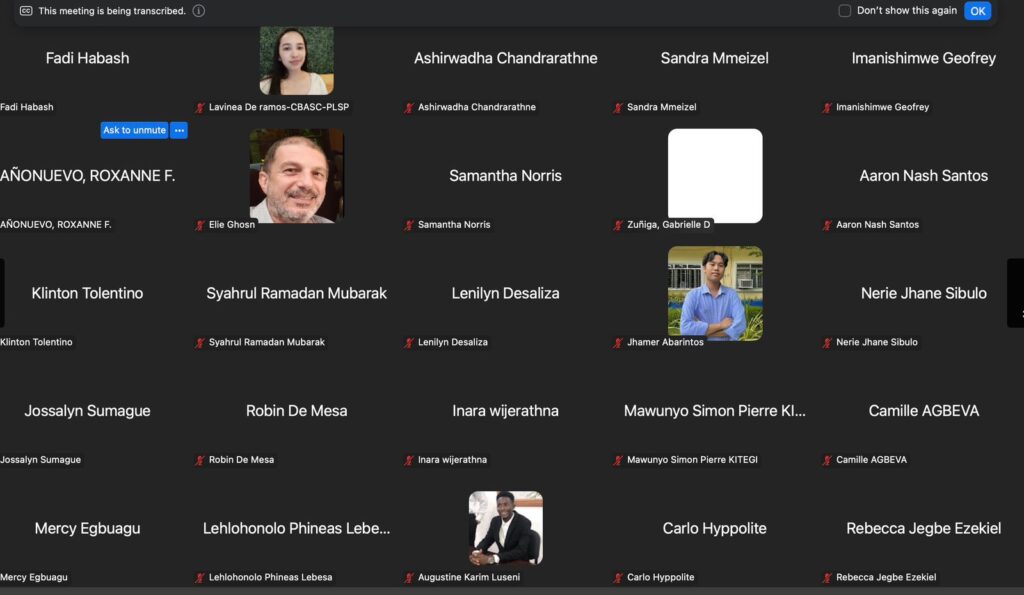
As the session neared its end, Ms. Maria Consolate Chinesa EDOMBI, Regional Coordinator of IYCS Africa, delivered the vote of thanks. She began by thanking God for the fruitful gathering, then extended her appreciation to the speaker, interpreter, moderator, and all participants who contributed to the success of the webinar. She emphasized that the insights gained from the session should inspire renewed action, rooted in faith, justice, and solidarity, and encouraged everyone to continue walking the path of See–Judge–Act in their respective contexts.
Participants were reminded to fill out the Google Form to receive their e-certificates of participation, and the session concluded with a closing prayer once again led by Rev. Fr. Justo De La Fuente Fernandez, bringing the event to a spiritually fulfilling close. A group photograph marked the conclusion of the event, capturing the unity and diversity of the international gathering.
Overall, the webinar served as a meaningful space for learning, reflection, and dialogue. It reinforced that the See–Judge–Act methodology remains deeply relevant in addressing contemporary challenges, and that it empowers young people and leaders to live consciously, judge ethically, and act courageously. The International Secretariat and the Australian Cardijn Institute look forward to the upcoming sessions of this enriching series.





